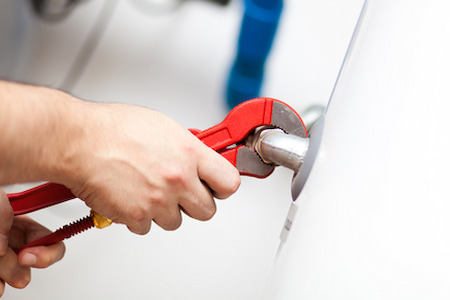3 Signs It's Time To Look For A New Water Heater

If you and your family are like most homeowners, you rely on your hot water heater for a great deal of the comfort and convenience you enjoy from your home on a daily basis. From cooking to cleaning, and even bathing, you expect a lot from your hot water heater, and over time, all of this use is going to wear on it.
Most homeowners who have a water heater fail are unaware of the signs leading up to it, and to help spare you a great deal of headache, our team of skilled Atlanta A/C company pros at Southern Home Performance Inc have taken the time to put together this short list detailing some of the early warning signs that indicate your home is nearly due for a new water heater.
Age
The age of your tank itself is one of the first factors to consider when deciding whether or not it's time to replace your old water heater. You can usually find the age of your tank by looking at the serial number on the manufacturer's sticker. If you determine that your tank is older than ten years, it might be a good idea to start considering replacement options, but if your tank is in a location where it won't cause significant damage if a leak occurs, it's possible to wait until that happens, although we wouldn't recommend it. In most scenarios, it's always best to replace your old tank before it starts to leak.
Rusty Water
If you notice that you've got rust-colored water coming from your faucets, particularly when you're running the hot water, it's a likely sign that there's rust built up inside your water heater. A good way to test whether or not the rust is actually coming from inside your water heater, and not from the inside of your pipes themselves, is to drain a few five-gallon buckets from your water heater, and if you still see rust coming out by the third bucket or so, you can be fairly certain the issue is coming from your tank itself, which means it's likely time to have it replaced.
Rumbling & Other Noises
Sediment build-up is something that tends to happen as your water heater ages, and when it starts to harden over time, it will often produce rumbling or banging sounds as it's continually reheated or comes in contact with the heating element of your tank. As this sediment builds up, it will start to reduce the overall capacity and efficiency of your system as a whole, causing more damage as time goes on. If you notice any banging or rumbling sounds that seem out of place while your water heater is running, it's likely time to start looking at replacement options.